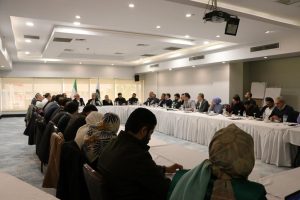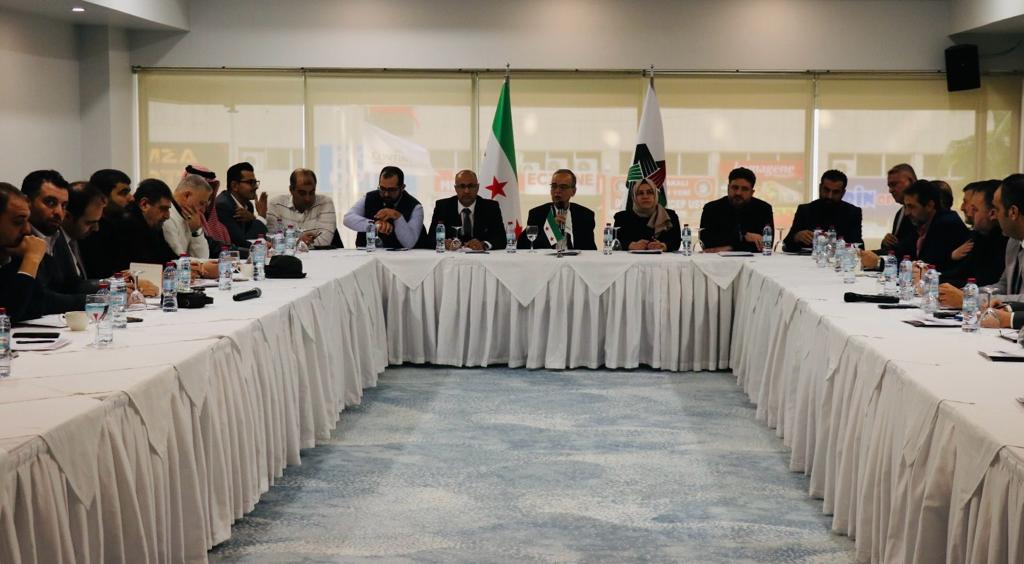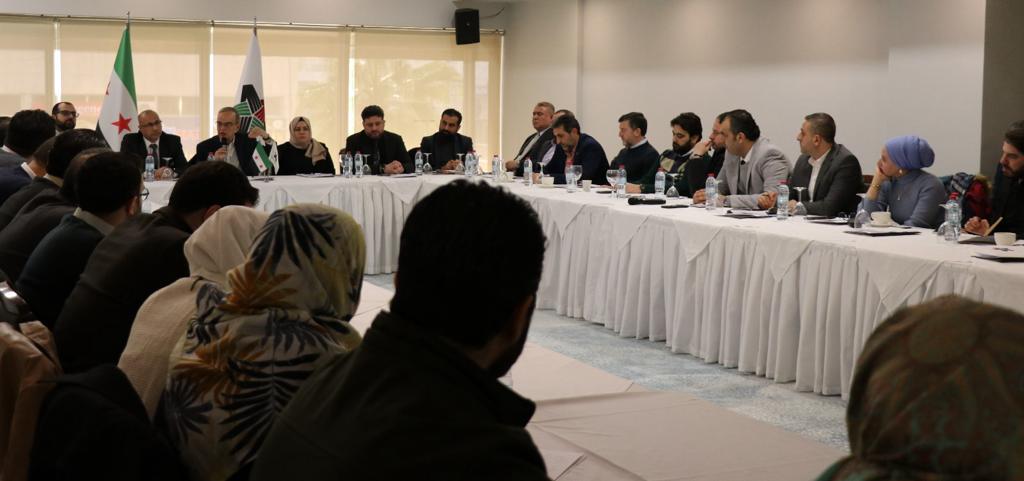The Syrian Opposition Coalition (SOC) convened the inaugural coordination meeting of the Civil Society Organizations Working Group in the Turkish city of Gaziantep on Saturday. The meeting, attended by SOC President Hadi Al-Bahra and various Syrian civil society organizations, addressed pressing issues arising from recent developments in the region.

Naziha Akdeniz, the Coordinator of the Civil Society Organizations Working Group, along with group member Firas Al-Masri and political committee members Salim Al-Khatib, Ahmed Bakkoura, and Ali Melhem, participated in the event. Also present were SOC General Assembly members Ahmed Nawaf Al-Jarba and Abdul-Malik Abboud, Syrian interim government representative Yasser Al-Hajji, SOC’s Gaziantep office director Muhammad Al-Shamali, and Muhammad Hasno, the Executive Director of the Assistance Coordination Unit.
The meeting was prompted by the escalating regional and international crises, dwindling budgets for humanitarian and relief support programs for Syria, unmet pledges by countries, and a persistent rise in the percentage of households living below the poverty line, exceeding 90%.
President Al-Bahra emphasized that current indicators signal an impending exacerbation of the humanitarian crisis, potentially leading to the most significant humanitarian disaster in the country’s history. He cited the blockage of a political solution, international neglect of UN Security Council resolutions (notably Resolutions 2118 and 2254), and a failure to address the aspirations of the Syrian people as contributing factors.
In response to these challenges, Al-Bahra asserted a national duty to discuss strategies to avert a humanitarian, economic, and political catastrophe. He underscored the necessity of a comprehensive national plan, developed collaboratively and adopted collectively, urging institutions, organizations, associations, and individuals with expertise to contribute to its implementation in an organized manner.
The SOC President highlighted the meeting’s objective: to foster coordination and partnership between the SOC as a political leadership, its interim government as an executive authority, and Syrian civil society organizations. This collaboration aims to formulate and execute a national plan that addresses challenges, alleviates the suffering of the Syrian people, and prevents the outflow of human resources and national capital.
Al-Bahra stressed the importance of a development plan for northern Syria, enhancing security and stability, facilitating the voluntary and dignified return of refugees—particularly those from liberated areas—and transforming these regions into attractive hubs for investment and job creation. The goal is to boost productive capabilities in agricultural and industrial sectors while overcoming local and international challenges faced by organizations.
(Source: SOC’s Media Department)














